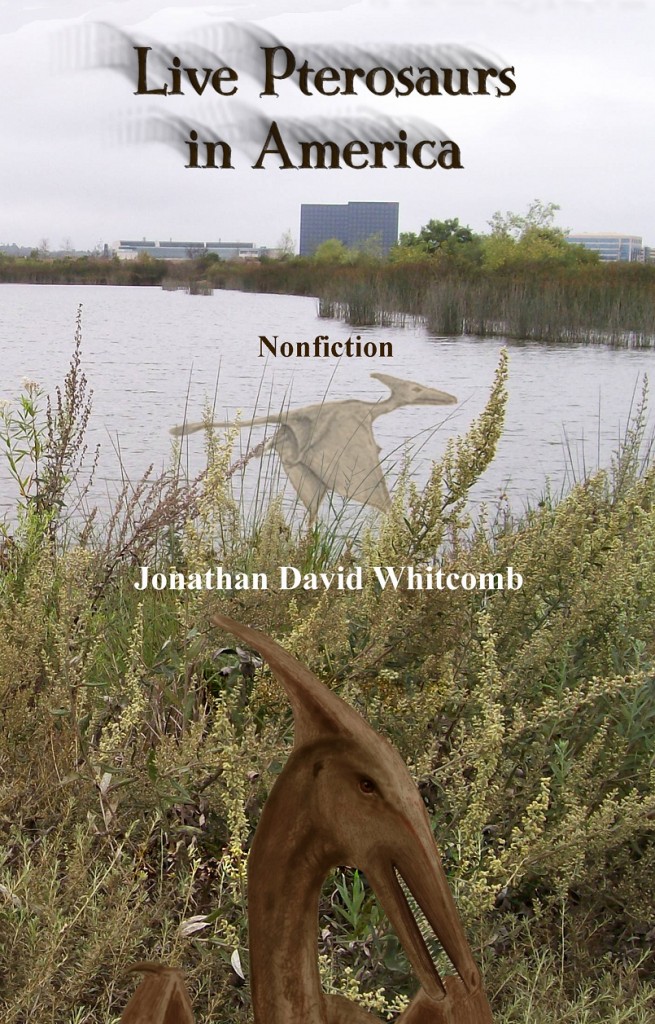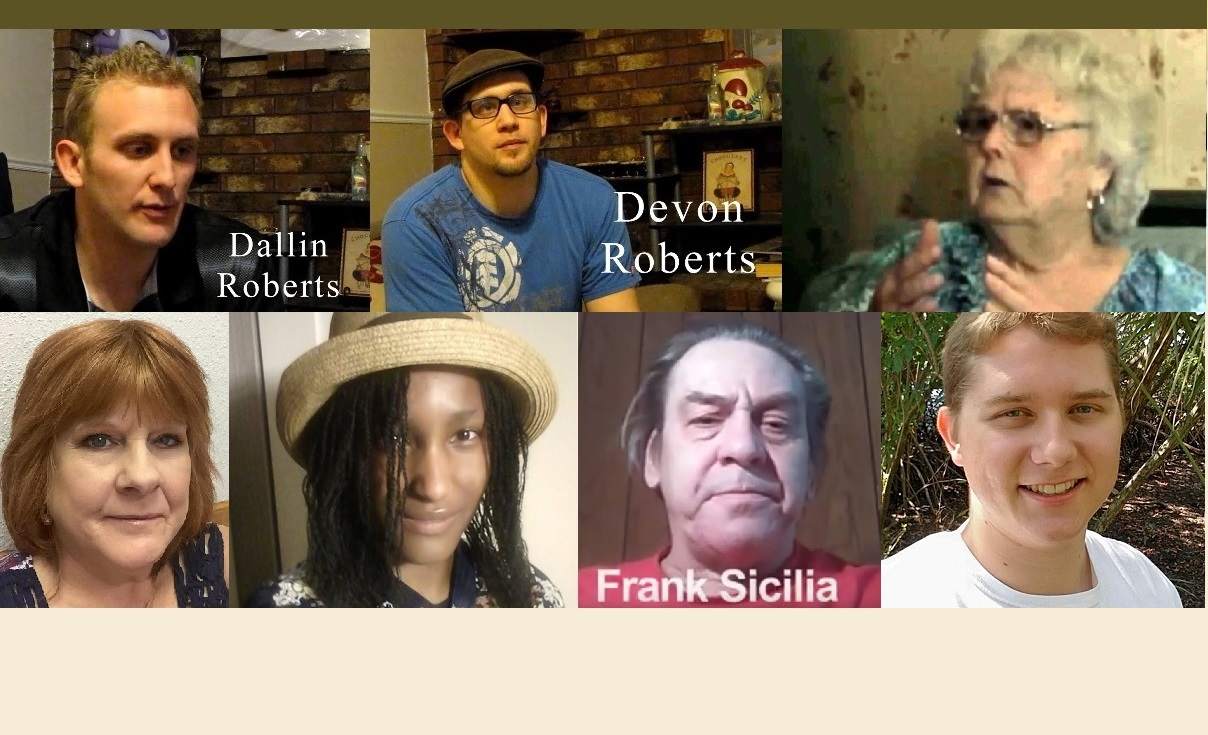My own qualifications, intelligence, and integrity—those are not my favorite subjects to write about unless I’m responding to a forum in which that is the subject or a significant sub-topic. I won’t link to the cryptozoology forum now in question, for some of the comments are needlessly insulting and the phrase “that he lies about in his book” appears to be libel. I won’t add my comments on that forum thread, for past experience has taught me that those critics will not change their minds, regardless of what I write, on that forum, about potential modern pterosaurs or about my own qualifications or integrity.
The title is “Jonathan Whitcomb: Pterodactyl Expert,” although the one that appears guilty of libel spells it “Johnathon Whitcomb.” I don’t mean to imply that everything on this forum thread is without merit. But all commentators except the one initiating the discussion appear to me to practice bulverism rather than comment on any specific sentence that I have written. To my critics I say, “Why not be specific? Why not quote me?”
I believe that the total number of web pages and blog posts that I have written over the past eight years is well over a thousand, with perhaps more than a quarter of a million words related to the concept of modern living pterosaurs. That is in addition to two editions of one nonfiction book, three editions of another, and a scientific paper in a peer-reviewed journal of science. With hundreds of thousands of words to choose from, why doesn’t at least one of the critics on this forum thread find one or two of my sentences, to quote me? If one of my books includes a lie, why not quote that lie, bringing to light why it is wrong?
One critic seems to quote (less than a sentence) from one or more of my web pages:
Jonathan D. Whitcomb,
certified court videographer
But that critic then uses the title try to convince others that I am not an expert at anything else. I doubt that “ape man” has read much of what I have written, especially since he menions my “book” instead of “books.”
Eyewitness Testimonies, not Bulverism
I agree, at least somewhat, with the critics’ idea that I am not a pterosaur fossil expert; compared with a typical paleontologist (I am neither typical anything nor a paleontologist), I am not an expert on fossils. What the critics have apparently failed to consider is the possibility that I have more expertise on pterosaur fossils than any of them, although that has little relevance.
The critical subject is eyewitness testimonies, not the religious bias of Jonathan Whitcomb. With eyewitnesses, of various religious backgrounds and cultural influences, having encounters in many parts of the world, why not comment on those eyewitness reports?
Correcting a Critic
“Ape man” wrote “his argument is that an existing pterosaur could have EVOLVED into a glow in the dark thingie or whatever.” When did I present that argument? I find it hard to believe that “ape man” has read hardly anything that I have written. I don’t declare that non-bioluminescent pterosaurs lived at any time in the past; I don’t declare that bioluminescence evolved. I suggest that some of the flying lights observed regularly in some areas of the world are bioluminescent barn owls and other flying lights in other areas may be living pterosaurs related to the ropen of Umboi Island.
I never suggested that any modern pterosaur can “carry away cattle.” I never suggested that any modern pterosaur can “sing.” I suggest that some of the modern pterosaurs on this planet appear to have an intrinsic bioluminescence, based upon eyewitness reports.
“Ape man” said, “No paleontologists were even contacted!” He seems to have referred to the two lights videotaped in Papua New Guinea, in 2006, by Paul Nation. Apparently “ape man” is only aware of my first book: Searching for Ropens, but he makes a mistake in the declaration that “Rhamphorhynchoid-like creatures” were the conclusion of a “missile technician and an associate physics professor.” Those two men said nothing of the kind. The conclusions related to the two videotaped lights (not “film” but video) were the elimination of common explanations: no car headlights, no meteors, no flashlights, no campfires, no camera artifacts, etc.
In addition, I have indeed communicated with paleontologists, even those whose origin philosophies differ from my own, and I have written from the experiences of those communications. Most of the critics who have commented on the thread title “Jonathan Whitcomb: Pterodactyl Expert” have done so in apparent offense at what they imagine about my religious foundation and at my defiance of the universal-extinction dogma regarding pterosaurs. The one commentator (on that forum thread) who did not openly criticize my motives or my integrity or my objectiveness—that person seems to have been persuaded that he should not have labeled his posting “Jonathan Whitcomb: Pterodactyl Expert.” I will not enter that discussion on that forum, however. Let readers and writers do as they please.
###
When someone publishes a web site with a URL that includes the words “stupid” and “lies,” and the point of the site is to ridicule those who promote the idea of living dinosaurs or living pterosaurs, “bulverism” probably fits . . . Of course “libel” also fits . . .
Who can be a Pterodactyl Expert?
How do we answer the question “Who can be a pterodactyl expert?” It depends on whether we refer to fossil bones or sighting of live pterodactyls. In the sense of the latter, Whitcomb seems qualified by his interviews with eyewitnesses; in the sense of the former, he seems unqualified, for he is no paleontologist.

From the Acknowledgements page of the non-fiction cryptozoology book Live Pterosaurs in America (third edition):
To the eyewitnesses who’ve bravely come forward, telling us of apparent living pterosaurs, I dedicate this book. They deserve to be heard.
Several Americans have investigated reports of what natives of Umboi Island call “ropen,” including three pioneers. Jim Blume, a missionary in Papua New Guinea for decades, interviewed dozens of native eyewitnesses of pterosaur-like creatures. Carl Baugh led the first three expeditions, preparing the way for the rest of us to follow. Paul Nation, in four expeditions, searched in two areas of PNG, contracting serious infections twice.
Just weeks after my 2004 expedition on Umboi Island, the cryptozoologists Garth Guessman and David Woetzel interviewed Umboi native eyewitnesses with systematic interview forms (and those two Americans later assisted investigations in another country). Woetzel and I later wrote separate scientific papers, in a peer-reviewed journal, about our experiences in Papua New Guinea and about pterosaurs in human times. We appreciate the support from our families and from our friends here and abroad. . . .



I have just learned from an eyewitness, that skeptics are also troubling to her. I will now actively seek for eyewitness participation on this blog.